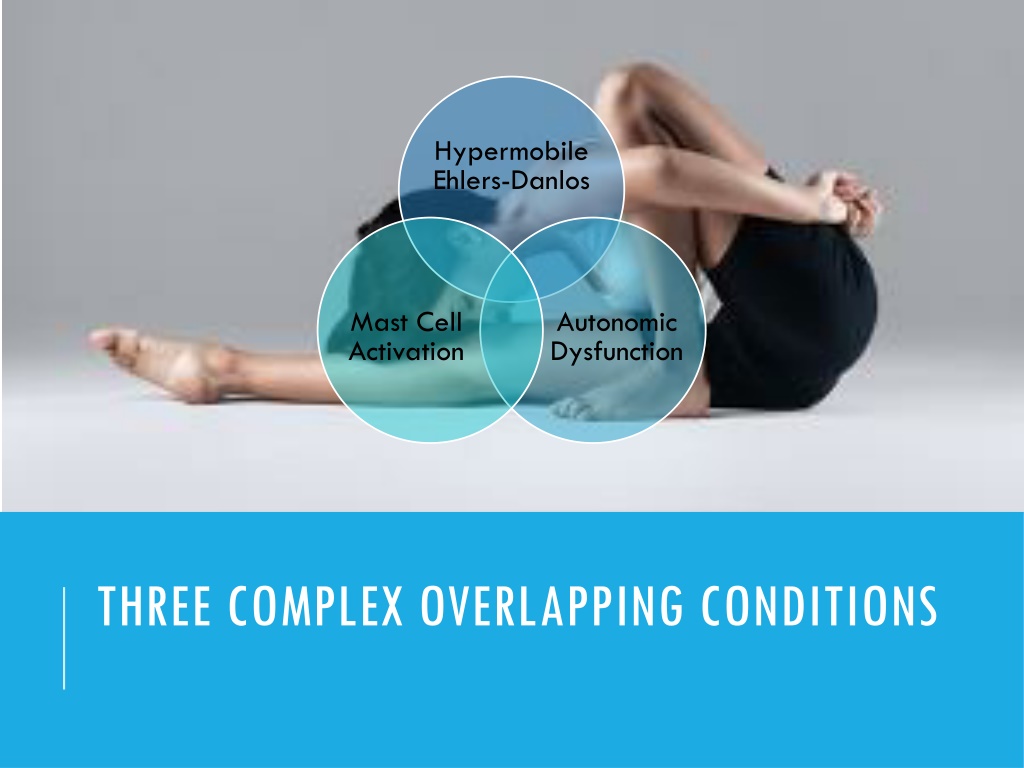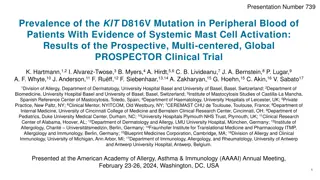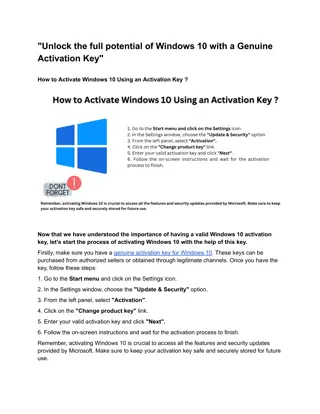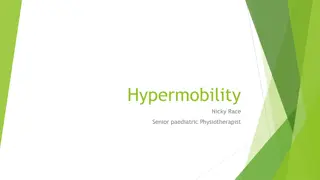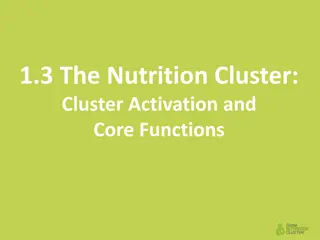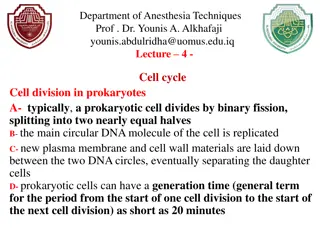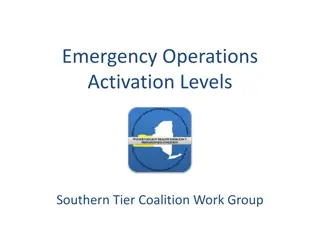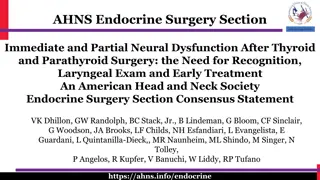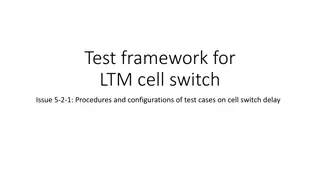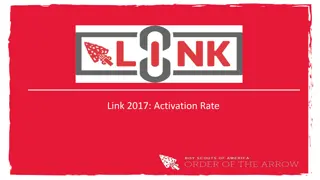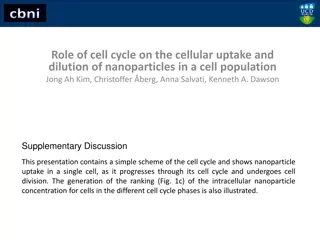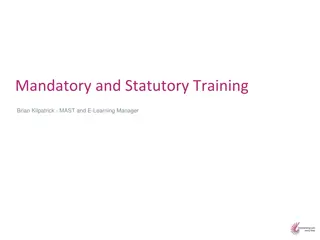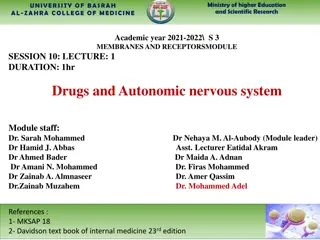Understanding Hypermobile Ehlers-Danlos, Mast Cell Activation, and Autonomic Dysfunction
Hereditary Connective Tissue Disorder, Hypermobile Ehlers-Danlos Syndrome (hEDS), and Mast Cell Activation Syndrome (MCAS) are three complex conditions with overlapping symptoms affecting collagen, joint laxity, and immune responses. Features associated with these conditions include joint pains, gastrointestinal disorders, fatigue, skin issues, pelvic floor problems, and more. Mast cells play a key role in immune regulation and can trigger inflammatory and allergic responses in MCAS. Symptoms may vary and can impact various body systems, requiring a multidisciplinary approach for management.
Download Presentation

Please find below an Image/Link to download the presentation.
The content on the website is provided AS IS for your information and personal use only. It may not be sold, licensed, or shared on other websites without obtaining consent from the author. Download presentation by click this link. If you encounter any issues during the download, it is possible that the publisher has removed the file from their server.
E N D
Presentation Transcript
Hypermobile Ehlers-Danlos Mast Cell Activation Autonomic Dysfunction THREE COMPLEX OVERLAPPING CONDITIONS
Hereditary Connective Tissue Disorder affecting collagen Characterised by joint laxity Autosomal Dominant inheritance (variable symptoms) No gene identified No test HYPERMOBILE EDS/HSD Criteria-based diagnosis for hEDS, remainder Hypermobility Spectrum Disorder Differential diagnosis Other rarer EDS subtypes Other rare connective tissue disorders such as Marfan s Autoimmune rheumatological conditions Managed with physiotherapy and by symptom
Focal or generalised joint pains or fibromyalgia, including joint dislocations, Growing pains , Complex Regional Pain Syndrome FEATURES ASSOCIATED WITH HEDS/HSD NUMEROUS & VAGUE Gastrointestinal disorders like IBS, reflux, disordered gut motility Fatigue, muscle spasms, muscle weakness, restless legs, migraines Disorders of pelvic floor/bladder/menstruation Poor sleep, anxiety, symptoms of vitamin & mineral deficiencies Fragile/stretchy skin, hernias, easy bruising, poor wound healing Flat feet, varicose veins, piezogenic papules, scoliosis
Hypersensitive Mast Cells Master regulators" of the immune system De-granulate releasing multiple cytokines when triggered Inflammatory & allergic symptoms MAST CELL ACTIVATION SYNDROME Diagnosis Symptoms of MCA (Mast cell mediators elevated), biopsies? Improve with mast cell mediating medications 1-17% prevalence (NIH study 5% Familial Tryptasaemia) Stepwise worsening with stressors
Gastrointestinal IBS, leaky gut, malabsorption, nausea, vomiting, disordered gut motility Swallowing problems, throat tightness, globus Cardiovascular Light-headedness, pre-syncope, syncope, labile BP Tachycardia or POTS Dermatological/Haematological FEATURES ASSOCIATED WITH MCAS NUMEROUS & VAGUE Flushing, itch, urticaria Easy bruising/clotting disorders Psychological & Neurological Brain fog, short term memory dysfunction Headaches, migraines, vertigo, tics, tremors Autistic Spectrum Disorders(?) ADHD(?) Respiratory Congestion, coughing Asthma (may be poorly controlled) Vision/Eyes Ocular discomfort, allergic conjunctivitis Constitutional Fatigue, fibromyalgia-type pain, Complex Regional Pain Syndrome(?) Weight loss/gain Multiple food, drug, and chemical intolerances (especially fragrances) Autoimmune conditions Musculoskeletal Osteoporosis/osteopenia or osteosclerosis ANAPHYLAXIS
Orthostatic Intolerance with sustained rise in pulse on standing No prevalence data frequently seen in specialist clinics Diagnosis by tilt table or active stand test Can be highly debilitating Autonomic dysfunction can be secondary to other conditions Fluids, salt, exercise and sometimes medication Triggers pubertal growth spurt, viral illness Effective treatments are available POTS & AUTONOMIC DYSFUNCTION
FEATURES ASSOCIATED WITH POTS NUMEROUS & VAGUE Palpitations, pre-syncope Brain-fog poor memory, poor concentration, word-finding difficulties Fatigue & exercise intolerance Tremulousness Headaches/migraines Lack of vasoconstriction Temperature dysregulation Poor sleep Anxiety
PUTTING IT ALL TOGETHER Fatigue Low BP and PoTS IBS-like symptoms, indigestion Poor healing Stretchy skin Bruising Allergies Autoimmunity Hypermobile joints, Dislocations Sprains Anxiety Poor sleep Family history Chronic pain Medically unexplained symptoms Weak pelvic floor Migraine
